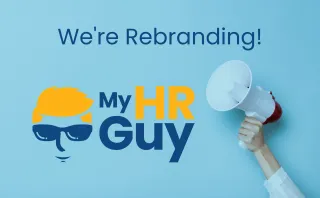Exciting News! We have rebranded as My HR Guy!
Visit our new website at MyHRGuy.com
HR & Safety Compliance for the Trades
The Big Picture Consulting offers help with HR, safety, and payroll to bring peace of mind to home service providers.

WHO WE ARE
About The Big Picture Consulting
Do you own a business in the Trades? If so, you need someone who’s got your back when the rule-makers don’t. A team who won’t cringe at diving into the world of contractor regulations. At The Big Picture Consulting, we’re not just familiar with the contractor industry - we’re rooted in it.
For more than decade, HR Guy Ian Schotanus and team have helped home service providers nationwide with human resources, safety compliance, and payroll. Our unique focus on the Trades means you get industry-specific guidance and expertise that you won't find anywhere else.
We thrive on challenges that other people avoid, like helping you comply with laws that weren't written with you in mind. If you're in HVAC, plumbing, electrical, garage doors, or similar industries, let us help you with the regulatory and complicated stuff so you can focus on your business.
WHAT WE OFFER
Explore Our Services

Foundational HR & Safety Resources
We offer the basics to help you master HR and safety compliance and become a better employer. You get a personalized employee handbook, essential document templates, company-specific safety manual, OSHA-required safety program, and more!
HR Advice & Expertise
With a Retainer account, you get unlimited on-call HR support for those crazy "my employee just did WHAT?!?" emergencies. We're here to help you... from hiring to firing and everything in between!


Hands-On HR Administration
Looking for someone to take on HR tasks? We offer that, too! For less than it costs to hire an in-house HR admin, an Executive Retainer account gives you a team of real people (not AI!) to help with payroll processing, recruiting and onboarding, employee-level HR support, and a whole lot more.
Payroll Compliance
Guess what: most contractors paying spiffs and commissions are NOT compliant with overtime laws. We'll make sure your pay plan is legal, and it actually incentivizes your employees to do good work. We can help tweak your current system, or set you up with an innovative pay plan that we developed ourselves and can manage for you.

Trusted by Clients
See why clients enjoy working with The Big Picture Consulting!
Great group of people and they are super helpful and easy to work with and available. Highly recommend them. It’s like having in-house HR. They have helped us navigate all sorts of HR issues that would have taken us a lot longer to figure out on our own. They go above and beyond regularly.
NANCY DAMIANO
CK Electric
Ian is amazing! He gives you great tools, lots of resources and is always available! I am an attorney by training and although I don’t practice now and run my own HVAC and Plumbing company, I find HR specific knowledge needed and very valuable! Save yourself now, trust The Big Picture!
STACY FORE
Triple Play Home Services
FAQS
What does it mean that you offer "HR for the Trades"?
Because we work with companies like yours every day (HVAC, plumbing, electrical, garage doors) we know and understand the laws that impact you. The problems you address on a daily basis, from incentive pay to OSHA requirements to the use of company-owned vehicles, are topics that a standard HR firm just doesn’t understand. Not only do we know your industry, as a small family-owned company ourselves we can relate to many of the challenges you might face. We get to know you personally and offer honest advice that's easy to understand and specific to your needs. We guarantee no canned responses or AI-generated content... just real expertise from real HR pros.
Do you do one-off project work?
While we can offer one-off advice in a pinch, this will only get your business so far. We prefer that clients keep us on retainer so we can provide you with ongoing advice, essential resources, and proactive tips as your business progresses. This way we can help you get to the root of the issue and solve it, instead of just putting a band-aid on it, and ensure your company documents (employee handbook, safety manual, required employee paperwork) align with the decisions you make.
Retainer accounts are flexible, affordable, and require no long-term commitment. Check out our services page to learn more.
I've got an AI-generated Employee Handbook and Safety Manual I made with an online template. Why isn't that good enough?
Even the best templates don’t take into account your industry, company size, state-specific legislation, and personal business preferences. And they are often written in "legalese" so they're impossible to understand. These details matter when it comes to putting policies into daily practice and keeping your company legally protected. Because we specialize in handbooks and safety manuals for the Trades, we make sure they do exactly what you need. Plus, we offer advice on best practices so you're not just compliant but also competitive in the industry, giving you an advantage in recruiting and retention.
Why do I need to worry about payroll compliance?
Unless you're paying pure hourly wages - or your employees never work overtime - you may be getting it wrong. Overtime pay is tied to the average an employee earns over the pay period, not their base hourly rate. So if an employee gets performance pay (spiffs, bonuses, etc.) on top of their hourly rate, you need to add BOTH when calculating overtime. Most payroll software doesn't make this easy on you, so if you're not taking extra steps to be compliant, you probably aren't!
We can help your business by making sure your payroll is compliant, easy to manage, sustainable, pays your employees fairly, and makes you competitive in the industry. Let us do the hard work for you!
Insights from Our Blog
New Year, New Brand - My HR Guy!
The Big Picture Consulting is transitioning to My HR Guy! We're your entire team of HR experts, helping HR Guy to keep your business compliant and bring you peace of mind. ...more
HR Advice
January 05, 2026•2 min read

Your Guide to Creating a Paid Holiday Policy
This essential guide details what to include in your company's holiday policy to keep the season bright: the 6 holidays you should offer, fair on-call scheduling, how to pay, rules for weekends, and h... ...more
HR Advice
November 20, 2025•4 min read

Another Option for Small Business Health Benefits
Health insurance costs are a HUGE topic right now, whether for individual accounts or what employers should offer employees. We know a guy who offers a fantastic and affordable alternative to traditio... ...more
HR Advice
November 10, 2025•1 min read

Employees Won’t Clock In? Your Brand Pays the Price
To be blunt: your technicians NEED to appropriately track their hours, no matter what type of compensation plan they're on. And your brand (and possibly your bottom line!) is at risk if they don't. Th... ...more
Employee Management
October 29, 2025•1 min read

Get In Touch Today!
Real expertise from real HR pros, specialized in the Trades
If you're in HVAC, plumbing, electrical, or garage doors, let us give you the foundations to run your business compliantly, and act as your unbiased on-call experts for any employee situations or questions. No generic templates or AI or long-term contracts - just personalized help to let you run your business with peace of mind!


